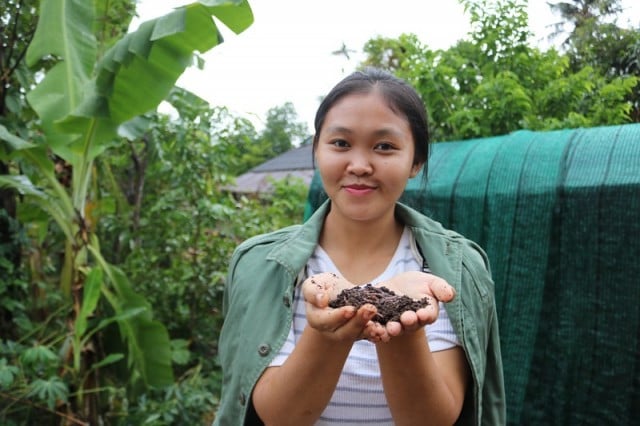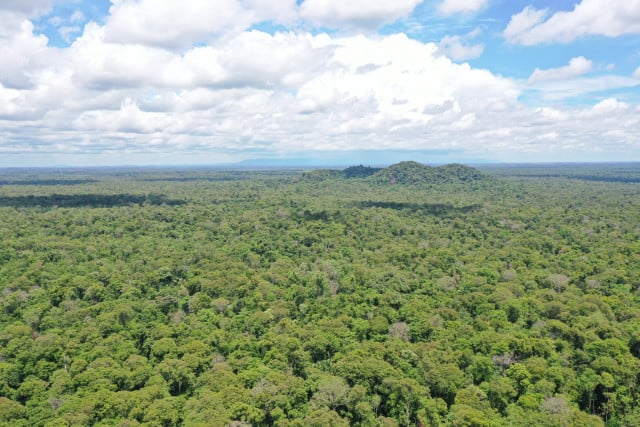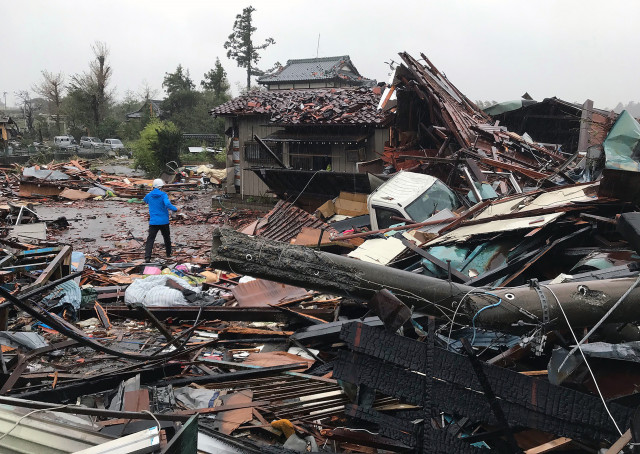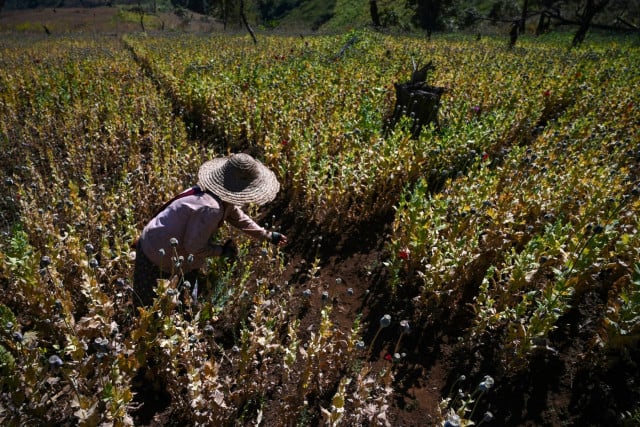Protecting the Environment and Helping Farmers Prosper: A Young Cambodian Woman is Determined to Do Both

- Ou Sokmean
- February 23, 2020 9:36 AM
PHNOM PENH--Over the last few years, Sok Sothearath has developed an expertise in a specialized field with two main goals: working with small farmers and offering an alternative to chemical fertilizers in order to protect the soil.
Now barely in her mid-20s and with a degree in agronomy, she has launched and runs a vermicompost farm in Kompong Chhnang province. In other words, she produces an organic fertilizer by using worms.
“At first, I mainly focused on their crop productions and livestock in this community,” Sothearath said in interview earlier this month. “Later on, I did research on earthworm casting production and realized that [farmers] really need this kind of natural fertilizers.
“This is the main reason that has kept me here in this community,” she said.
The process consists of using the organic waste—called worm castings—released by worms after they have digested their food. This waste comes in the form of small black pebbles.
“Despite the fact that earthworm feces don’t have immediate effect like chemical fertilizer, it gradually provides an immense support to help plants and crops grow, allowing them to stay healthy and produce fruit and veggies on a regular basis,” Sothearath said.
The quantity of vermicompost produced depends on the number of worms and the components used to feed them, she said.
“In order to produce up to five kilograms of earthworm castings, we normally put together around 10 kilograms of kitchen waste or cow feces along with one kilogram of earthworms in one place,” Sothearath said. “After that, we have to keep the place wet for a week in order to keep the process going.”

Sok Sothearath checks the progress of the natural-chemical process in her production room.
Working with local farmers, she both provides them with technical support on manure production and purchase worm castings from them to supply markets in Phnom Penh, she said.
“Currently there is one farmer who can harvest earthworm castings, and he can produce up to one ton per week,” Sothearath said. “However, we will have eight other farmers who will be able to harvest the castings within a month.
“I believe we will be able to purchase up to eight tons a week from them,” she said. Her business provides local farmers with some financial subsidies, equipment and technical training.
Regarding the market, worm castings fetch $1 per kilogram, but the market is still small, Sothearath said. In addition, there remain many challenges including the high costs of transport and distribution of the product, she said. But Sothearath, who has been in this field for some time, has every intention to make this a success.
According to the Ministry of Agriculture, Forestry and Fisheries, Cambodia mostly imports fertilizers from countries such as Thailand and China. In 2018, the country imported around 1 million tons of organic and chemical fertilizers.















